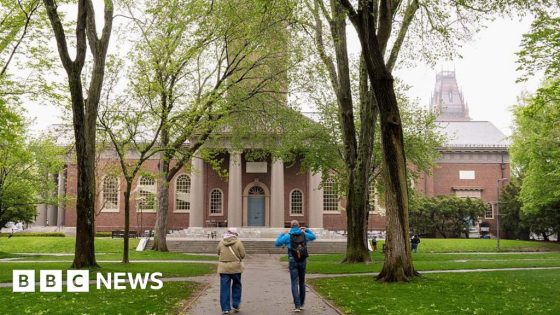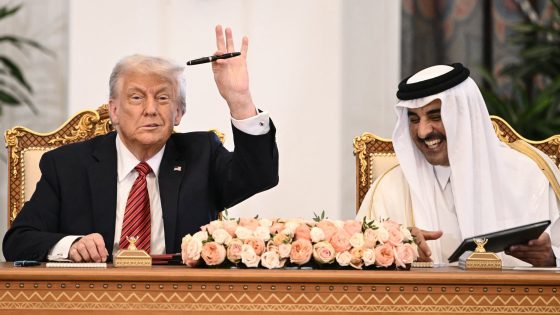The Trump administration’s recent decision to revoke Harvard’s ability to enroll international students has sparked significant controversy. This move, announced by Homeland Security Secretary Kristi Noem, escalates tensions between the federal government and the prestigious university.
- Trump administration revokes Harvard's international student program.
- Secretary Kristi Noem issues warning to universities.
- Harvard calls the action "unlawful" and retaliatory.
- Nearly 7,000 international students impacted.
- White House demands changes to combat antisemitism.
- Harvard claims to have addressed antisemitism issues.
Noem stated on X that Harvard’s “Student and Exchange Visitor Program certification” was revoked due to non-compliance with federal law. This action could impact nearly 7,000 international students, who make up over 27% of Harvard’s student body, as of the last academic year in 2025-05-22 22:26:00.
Harvard has labeled the decision “unlawful,” asserting that it undermines the university’s mission and threatens the academic community. As this situation unfolds, many are left wondering: what does this mean for the future of international education in the U.S.?
This action raises critical questions about the balance of power between educational institutions and government regulations. Will universities face increased scrutiny over their policies, or will they find ways to navigate these challenges?
- Harvard serves students from over 140 countries, enriching the academic environment.
- The administration demands changes to combat antisemitism, complicating the university’s autonomy.
- Potential retaliatory actions could set a precedent for other institutions.
As the debate continues, it’s crucial for educational institutions to advocate for their international communities and uphold the values of diversity and inclusion.
































